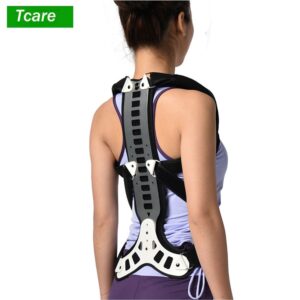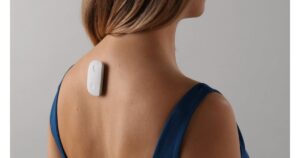Demystifying Posture
How important is our posture anyways?!

By Garrett de Jong
From the time I was a kid to my university days it was common knowledge that posture was important. “Sit up”, “don’t slouch”, “fix your posture” we’ve heard them all. But in chiro school I heard rumblings that, contrary to what many school teachers have said, there was no perfect posture. I knew of a number of clinicians who gave up on the idea of improving people’s posture. Upon graduation I was more confused than ever (just the feeling you want to have after a 4 year degree and a mind boggling student dept!).
If I was confused, I’m sure many of you are as well. Or maybe you were sold on the idea of maintaining good posture at all cost or on the idea that posture is not at all important. In either case this blog post may make you question your beliefs. In the following paragraphs I will do my best to demystify ideas on this thing we call ‘posture’.
First off, posture is defined as “the position in which someone holds their body when standing or sitting”. It is the static position we see when we look at someone’s body. So far it’s a very neutral statement. Now, let’s start by looking at the arguments that posture is overrated or outright not important. Here are some points:
Genetics. This literally has an effect on everything. It is quite common to see siblings, parents, and children to have the same posture despite leading different lifestyles. But genetics is complicated. We all know the age old ‘nature vs nurture’ debate but now epigenetics has shown that in many cases its nature and nurture!
“I’ve tried and it did nothing.” People work on their posture all the time. Some will seek help from therapists or buy weird apparatuses but nothing changes in the long run.
“I tried and it made it worse.” Some people have done their very best, used all the willpower they can muster to hold that ‘military posture’ for as long as they can in hopes to satisfy their aesthetic desires or alleviate pain only to fall short and make their symptoms worse!
Some amazing athletes have ‘poor posture’. Plenty of examples but my favourite is American weightlifter Lamar Gant (Fig 2) who was the first man to deadlift 5 times his bodyweight. He also happened to have a pretty noticeable scoliosis! Even running technique (which is a form of posture) varies within top runners.
The beliefs about posture can create ‘nocebo’ effects. The nocebo effect is essentially the opposite of the placebo effect. If you believe something is bad for you you’re more likely to experience pain because of that thing or attribute normal levels of discomfort to that thing. People blame their postures on everything! For example “I ran a marathon without training and my back hurts now… probably because my old doctor said I have bad posture!” 🤔
There’s poor research to support weather posture has a significant effect on pain/injuries.
Lamar Gant, the first man to deadlift 5 times his bodyweight also had a significant scoliosis.
Now let’s look at the arguments that posture is of utmost importance.
Physics. There is definitely a right and a wrong way to build a structure (i.e. buildings). The human body is not immune to the laws of physics. If your head is anterior to the rest of your body there will be tension in the back of the neck to keep your head from falling off. #science 🤓
Majority of athletes. There’s a reason we don’t see too many guys with a Larry King posture in the NBA.
“My posture/life improved with less sedentary living.” Our bodies are plastic. We adapt to our environment. Change your environment and your environment will change you.
Improved techniques (posture) leads to improved performance. Olympic track and field athletes put countless hours perfecting their technique (posture) running, throwing, jumping etc.
Okay now let’s find a middle ground:
Your posture is always serving you. Our postures have evolved for a reason, not just to piss you off 😉 Yes your ‘bad’ posture may not be optimal but it is actually serving you.
visual posture improvements will happen at the extremes. Like anything if there is lots of room for improvement, you are more likely to improve.
Some genetics can’t be overridden, some can! Don’t use genetics as an excuse but don’t fight it either!
The aesthetics are less important than the functionality.
The appearance does matter but only if its natural
There’s no denying the laws of physics, but we are not machines, we are ecosystems. When talking about biomechanics i often say “trust the mechanics, respect the bio”.




Recommendations:
move more, more better, rest more, rest better!! I’ve always found it interesting how our Hunter-Gatherer ancestors were not only more active than us but they rested more than us too! Becoming more active is obvious but improving our quality of rest is just as important. A common misconception is that slouching is always bad. In fact slouching is crucial! It gives you the ability to rest and recover. The only problem is if you are stuck in a slouched position and/or if you have a poor quality slouch (yes for many of us the problem isn’t slouching, it is in fact that we have a poor quality slouch!).
Be AWARE of key areas of restriction (be aware of compensations, not just what is tight but WHY it is tight), move/work slow, deliberately and HONESTLY on these areas. Get away from the ‘more is better’ mentality. It starts with quality. This is a big part of my job. First bring awareness to true areas of restriction then work deliberately on improving movement in these areas.
Let it happen, don’t make it happen. Like so many things, focus on what you can control and let everything else be.
Is your environment conducive to good posture, or is your world a foot in front of you at all times? (See my IG post for more on this)
Thanks for reading, hopes this got you thinking. Feel free to continue this discussion by emailing me with any questions or comments!
Garrett